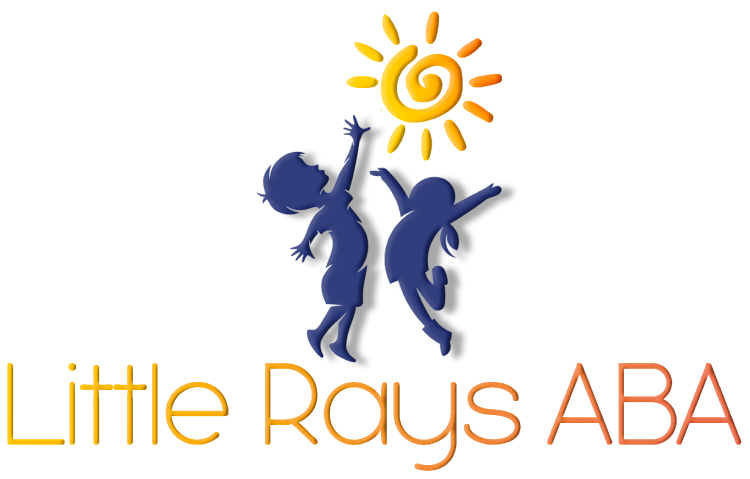Understanding BCBA Certification
Role of a BCBA
A Board Certified Behavior Analyst (BCBA) is a highly trained professional who specializes in the field of applied behavior analysis (ABA). They assess, design, implement, and evaluate behavior intervention programs aimed at improving socially significant behaviors in various populations, including individuals with autism spectrum disorder (ASD) and developmental disabilities.
Key Responsibilities of a BCBA:
- Conducting behavioral assessments
- Developing and implementing behavior intervention plans
- Supervising Registered Behavior Technicians (RBTs) and other ABA staff
- Training caregivers and stakeholders in effective behavior management techniques
- Monitoring progress and adjusting interventions as necessary
- Ensuring ethical standards are maintained in all practices
Demand for BCBAs
The demand for BCBAs has seen a remarkable increase over the past few years. The annual number of job postings that either required or preferred BCBA/BCBA-D certification rose from 7,091 in 2017 to 65,366 in 2023—an increase of 821% in only six years. This surge reflects the growing recognition of the importance of behavior analysis in supporting individuals with behavioral and developmental challenges.
States With High Demand
- California
- Massachusetts
- New Jersey
These states are among the top three in the United States with high demand for behavior analysts, indicating a robust job market for BCBAs in those regions.
The dramatic increase signifies not only the expanding field of ABA but also the critical role BCBAs play in various settings, including schools, private practices, and healthcare facilities. As the need for expert behavior analysts continues to grow, individuals seeking to become BCBAs can look forward to a promising career with multiple opportunities.
Paths to Becoming a BCBA
The journey to becoming a Board Certified Behavior Analyst (BCBA) involves meeting educational requirements and passing a certification exam. This section outlines the necessary steps to achieve BCBA certification.
Graduate Degree Requirements
The first step to becoming a BCBA is obtaining a graduate degree. The Behavior Analyst Certification Board (BACB) specifies that candidates must earn a master's degree or higher from an accredited institution.
There are four primary paths to meet the educational requirements:
- Accredited Program: Completing a master's or doctoral degree from an Association for Behavior Analysis International (ABAI)-accredited program.
- Behavior-Analytic Coursework: Earning a graduate degree in any field, along with completing specific behavior-analytic coursework verified by the BACB.
- College Faculty: Working as a college faculty member for a specific period while conducting behavior-analytic research and coursework.
- Postdoctoral Experience: Having a doctoral degree and at least 10 years of full-time practice in behavior analysis, along with supervised fieldwork.
Each path has detailed educational and experiential requirements that must be met before applying for the certification exam.
Certification Exam Process
After meeting the educational requirements, candidates must pass the BCBA certification exam. The BACB outlines specific steps to ensure that candidates are well-prepared:
- Fieldwork Experience: Candidates must complete between 1,500 and 2,000 hours of supervised fieldwork in applied behavior analysis. The hours are divided into restricted and unrestricted activities, covering client interaction, data analysis, and organizational tasks.
- Application and Fees: Prospective BCBAs need to submit an application and pay a fee. For instance, an application review incurs a $105 fee.
Once the application is approved, candidates can schedule their exam:
- Exam Content: The BCBA exam encompasses concepts, principles of applied behavior analysis, and ethical and professional conduct.
- Certification Process: Candidates should refer to the BCBA Handbook, watch informational videos, and stay updated with recent changes to BACB requirements.
Understanding the pathway to becoming a BCBA, including educational requirements and the certification exam process, ensures candidates are prepared for a successful career in behavior analysis.
Fieldwork Experience for BCBAs
Supervised Fieldwork Hours
To become a Board-Certified Behavior Analyst (BCBA), candidates are required to complete a specific number of supervised fieldwork hours. The Behavior Analyst Certification Board (BACB) mandates that all BCBA candidates accumulate 2,000 supervised fieldwork hours. This extensive period of hands-on experience is critical for developing the skills needed to effectively implement behavior analysis.
Types of Fieldwork Activities
Fieldwork activities for BCBA candidates are divided into two main categories: restricted and unrestricted hours.
Restricted Activities
Restricted activities typically involve direct client interaction and implementation of behavior-analytic programs. Examples include:
- Administering assessments
- Implementing behavior intervention plans
- One-on-one therapy sessions
- Direct observation and data collection
Trainees are not required to accrue restricted hours but must accumulate unrestricted hours to be fully prepared to perform tasks comparable to a certified behavior analyst.
Unrestricted Activities
Unrestricted activities provide a broader range of experience and are essential for developing comprehensive behavior-analytic skills. Examples include:
- Conducting behavior-analytic assessments
- Designing and overseeing behavior intervention plans
- Supervising the implementation of behavior-analytic programming
- Training caregivers and staff
- Writing behavior-analytic reports
The following techniques are often used in these activities, which help build skills and reduce challenging behaviors in clients:
- Task Analysis
- Chaining
- Fading
- Prompting
- Shaping
- Generalization
- Differential Reinforcement
- Video Modeling
Both restricted and unrestricted activities must be structured clearly by the trainee and supervisor to be relevant to the client's programming and ensure a comprehensive training experience.
Maintaining BCBA Certification
Continuing Education Requirements
To maintain BCBA® (Board Certified Behavior Analyst) certification, individuals must fulfill specific continuing education requirements. Every two years, BCBAs need to complete 32 continuing education units (CEUs). These CEUs must include a focus on ethics, ensuring that behavior analysts stay current with ethical guidelines and standards. Additionally, BCBAs who are in supervisory roles must complete 3 CEUs specifically in supervision.
The BACB does not mandate exact activity distribution for earning CEUs, giving flexibility for behavior analysts to choose activities based on their interests and goals.
Ethical Considerations
Ethical considerations are an integral part of maintaining BCBA certification. The Behavior Analyst Certification Board (BACB) has established a set of ethical guidelines that all BCBAs must adhere to.
These ethical standards encompass a variety of principles including:
- Client Rights: Ensuring the client's welfare and prioritizing their needs.
- Confidentiality: Protecting the privacy and confidentiality of client information.
- Professional Competence: Maintaining high standards of professional competence through ongoing education and training.
- Integrity: Conducting oneself with honesty and integrity in all professional interactions.
The BACB requires that BCBAs stay updated on these ethics through continual education. It's crucial that BCBAs regularly review and understand these principles to ensure they provide the highest standard of professional behavior.
Maintaining these requirements is essential in upholding the credibility and effectiveness of a BCBA and ensuring that they provide the best possible services to their clients.
Conclusion
Becoming a BCBA is a rewarding journey that allows professionals to make a meaningful impact in the autism community. If you're searching for autism therapists near me, finding the right support network is essential for hands-on experience and career growth. Explore local ABA providers today to gain the guidance and training needed to excel in this field.
Little Rays ABA is not just transforming the lives of children with autism—it’s also shaping the future of ABA professionals. With expert supervision, hands-on training, and a commitment to excellence, they provide aspiring BCBAs with the guidance needed to succeed in the field. If you're ready to take the next step in your ABA career, connect with Little Rays ABA today and start your journey toward making a real difference.
Frequently Asked Questions
What are the educational requirements to become a BCBA?
To become a BCBA, you must have at least a master’s degree in behavior analysis, psychology, education, or a related field from an accredited institution.
How many supervised experience hours are required for BCBA certification?
The Behavior Analyst Certification Board (BACB) requires candidates to complete 1,500 to 2,000 supervised experience hours, depending on the chosen supervision pathway.
Do I need to pass an exam to become a BCBA?
Yes, after completing the required coursework and supervised experience, you must pass the BCBA certification exam administered by the BACB.
Sources:
- https://behavioralcertification.org/?gad_source=1&gclid=CjwKCAiAzba9BhBhEiwA7glbanNEFH_AhZNs1aTp4SkEDQypqrC5g9pvE3Bkvj9Z2nnDhGkXDItZjRoCxdMQAvD_BwE
- https://www.behavior-analysis.org/
- https://www.nimh.nih.gov/health/topics/autism-spectrum-disorders-asd
- https://www.bacb.com/rbt/
- https://online.uc.edu/blog/how-to-become-a-board-certified-behavior-analyst-bcba/
- https://www.appliedbehavioranalysisedu.org/bcba-certification/
- https://www.abainternational.org/welcome.aspx
Unlock Your Child's Potential with Expert ABA Therapy!
At Little Rays ABA, we provide compassionate, evidence-based ABA therapy to help children with autism thrive. Our personalized approach fosters growth in communication, social skills, and independence.
Get In Touch With Us Today to Get Started With ABA Therapy!
Related Posts
MENU
GET IN TOUCH
7117 San Salvador Dr Boca Raton, FL 33433
3200 Collins Ave Miami Beach, FL 33140





